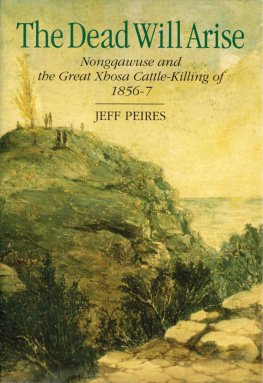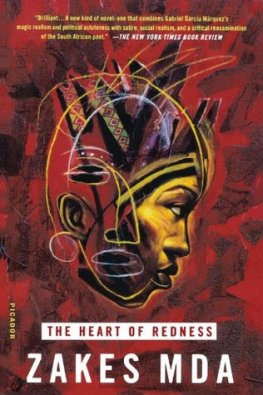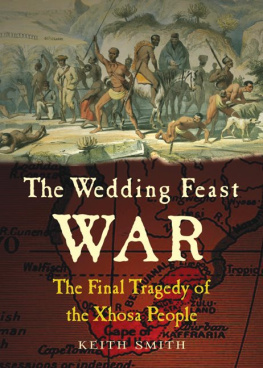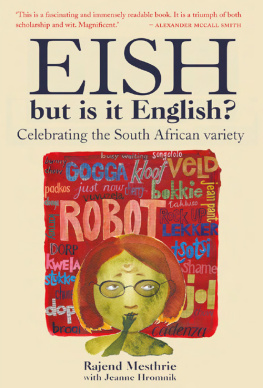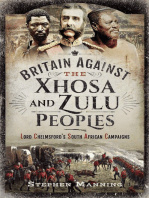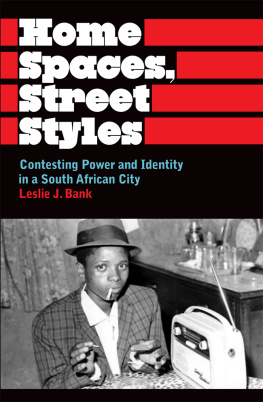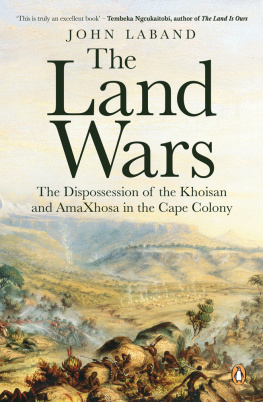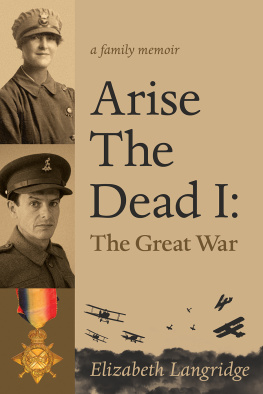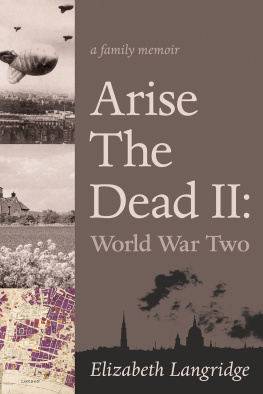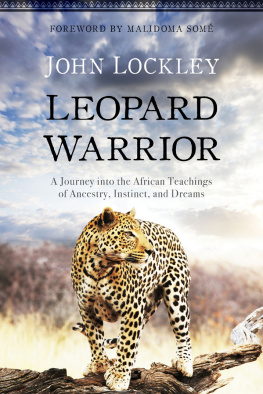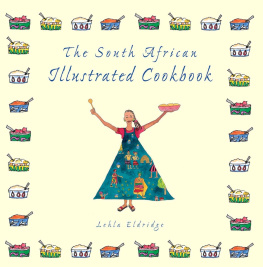Description
The Dead Will Arise tells the story of Nongqawuse, the young Xhosa girl whose prophecy of the resurrection of the dead lured an entire people to death by starvation. The Great Cattle-Killing of 1856-57, which she initiated, is one of the most extraordinary and misunderstood events in South Africas history. Jeff Peires was the first historian to draw on all available sources, from oral tradition and obscure Xhosa texts to the private letters and secret reports of police informers and colonial officials, and the original edition of The Dead Will Arise won the 1989 Alan Paton Sunday Times award for non-fiction.
Title Page
The Dead
Will Arise
Nongqawuse and the Great Xhosa Cattle-Killing Movement of 1856-7
JEFF PEIRES
JONATHAN BALL PUBLISHERS
JOHANNESBURG & CAPE TOWN
Acknowledgements
Acknowledgements
Every effort has been made to credit the original source of the photographs. As many of these were sourced from archives, this has not always been possible. In the event of any error, please notify the publisher and the correction will be made in the event of a reprint.
We would like to thank the MuseumAfrica for the cover image and the following institutions for the photographs that were supplied for the original edition and used in this reprint:
The Brenthurst Press for the pictures from The War of the Axe,
Edited by B le Cordeur and C Saunders (1981)
The South African Library, Cape Town
The Black Watch Regimental Museum, Perth
Preface
Preface
Few people who hear the story of Nongqawuse the young girl whose fantastic promise of the resurrection lured an entire people to death by starvation ever forget it. Tens of thousands of Xhosa died; tens of thousands more fled their homes; hundreds of thousands of cattle were slaughtered, the pathetic victims of a beautiful but hopeless dream. And while the Xhosa nation was lying prostrate and defenceless, Sir George Grey, a self-proclaimed benefactor of the non-European peoples of the world, trampled on this human wreckage: he exiled the starving, crushed the survivors, and seized more than half of Xhosaland for a colony of white settlement. The great Cattle-Killing movement remains an open sore in the historical consciousness of most South Africans. What was it all about? people ask. Surely the Xhosa could not have believed Nongqawuse? There must be something more behind the incident, some secret story behind the story that everyone knows.
But despite the widespread interest in Nongqawuses prophecies, the full history of that terrible period has never been written. There has never been a book on the Cattle-Killing, not even a bad one. Several historians have commenced on the topic, but none has completed it. The reason for this is that the primary sources, the evidence on which the historical account is based, are riddled with lies, both deliberate lies and self-delusions.
Most of the official documents, including almost all the printed official documents, are contaminated with references to the Chiefs Plot, the theory that the Cattle-Killing was a conspiracy by the Xhosa chiefs to bring about a war with the Cape Colony. If we leave the official documents to consult the archives which are stored in the memories of the old men of Xhosaland, we get the mirror image of the Chiefs Plot, namely Greys Plot, the theory that the root cause of the Cattle-Killing was a trick by Sir George Grey to deceive the Xhosa into destroying themselves. Today, there is hardly a Xhosa alive who does not believe that Sir George Grey was in some way responsible for Nongqawuses prophecies.
I started this book in 1981, feeling somewhat sceptical about both Greys Plot and the Chiefs Plot. Six years later, having examined all the evidence on the Cattle-Killing that I can find, I am more than ever convinced that there was no plot on either side. Moreover, I am convinced that we do not need a plot or a conspiracy to explain the Cattle-Killing movement. I believe, and I trust that this book will demonstrate, that the Cattle-Killing was a logical and rational response, perhaps even an inevitable response, by a nation driven to desperation by pressures that people today can barely imagine. I further believe, and I trust that the book will demonstrate this too, that the Cattle-Killing would not have been so fatal an error had it not been for the measures of Governor Grey, which first encouraged and then capitalised on the movement. In this sense, though not in the one related by the old men of Xhosaland, Grey was the true perpetrator of the isihelegu sikaNongqawuse , the catastrophe of Nongqawuse. That is why I nowhere use the well-known term, the National Suicide of the Xhosa. The Nongqawuse catastrophe was as much a murder as it was a suicide. Probably, it was a little bit of both.
The evidence for this conclusion is set out in detail in the notes and in the bibliography. It is true that this evidence is partial, biased and incomplete, and that many of the secrets of the Nongqawuse period will never be told. Nevertheless, I would like to mention three crucial pieces of evidence which underpin my interpretation and lead me to hope that what I have written is not too far from the truth.
THE GREY-MACLEAN CORRESPONDENCE
GH 8/48 GH 8/50 in the Cape Archives contain the private correspondence between Sir George Grey and Colonel John Maclean, his top subordinate in British Kaffraria. It should not be forgotten that there were no telephones in those days, and that all long-distance communications had to go by letter. While official communications should be read with scepticism, one may safely assume that a private correspondence is a frank and truthful exchange of views.
THE WORK OF WW GQOBA
Two articles by WW Gqoba entitled Isizatu sokuxelwa kwe nkomo ngo Nongqause (The reason for the killing of cattle by Nonggawuse) are based on interviews with believers. Though Gqoba was a Christian, he was writing with the explicit intention of challenging the Chiefs Plot theories then prevalent in mission circles. Not only does Gqoba supply many details which would otherwise be unavailable, but he provides us with the Xhosa vocabulary and terminology actually used by the believers.
THE CAPE JOURNALS OF ARCHDEACON NJ MERRIMAN
These give us a fascinating insight into the personality of Mhlakaza, a key figure in the Cattle-Killing movement. They reveal that Mhlakaza, far from being a heathen witchdoctor, was the first Xhosa ever baptised into the Anglican Church. Once we understand Mhlakazas background and the personal motivations which inspired his religious experiences, we realise that we have no need of the Chiefs Plot or of Greys Plot or of any other hypothesis to explain his behaviour.
Many people have helped me in the writing of this book. Special thanks are due to Professor Rodney Davenport, who organised extra study leave for me in 1981; to Professor Shula Marks, who hosted my sabbatical at the Institute of Commonwealth Studies in London in 1984-5; and to the Human Sciences Research Council, which helped to finance the research without, of course, incurring any responsibility for the results. Mike Kirkwood did much more than merely edit the manuscript. Mrs Beryl Wood introduced me to the song which opens the book, and Messrs N Webb, R Hulley, A Nqamrha and MVS Balfour did much to ensure the success of my research in Transkei. Mr WO West of Rhodes University drew the maps. The staff at the Cape Archives, the South African Library and the other institutions mentioned in the notes were all extremely helpful, but I should like to single out Michael Berning, Sandy Fold, Zweliyanyikima Vena and the others at Cory Library, who bore the brunt of my problems. I should also like to take the opportunity to extend warmest personal greetings to Dr R Oelsner, who showed us a great deal more of Berlin than the Mission Archives. My parents, as always, have been a pillar of strength. The Dead Will Arise is dedicated to Mary-Louise and the boys, who have been compelled to endure all the innumerable prophecies and disappointments which accompanied the writing of this book.
Next page
